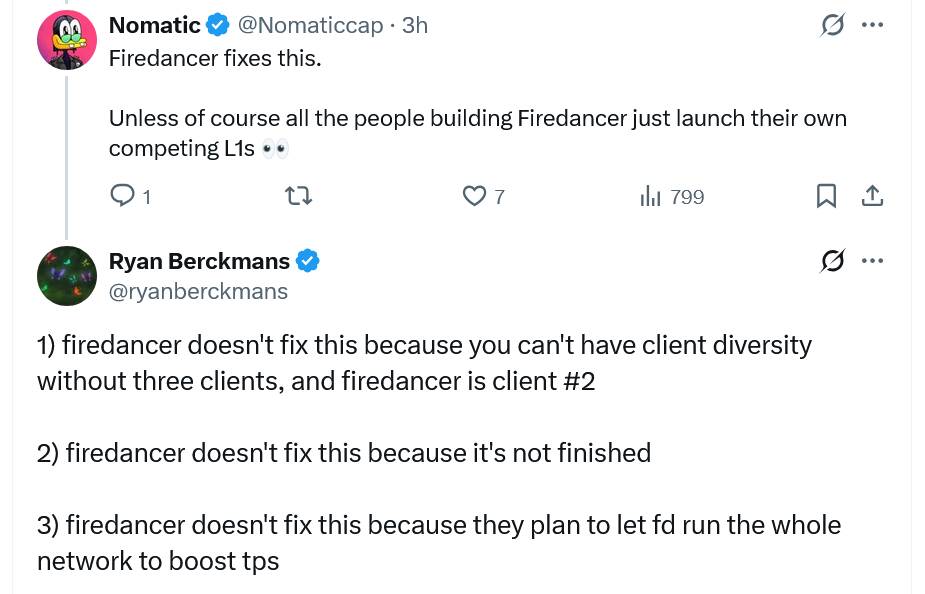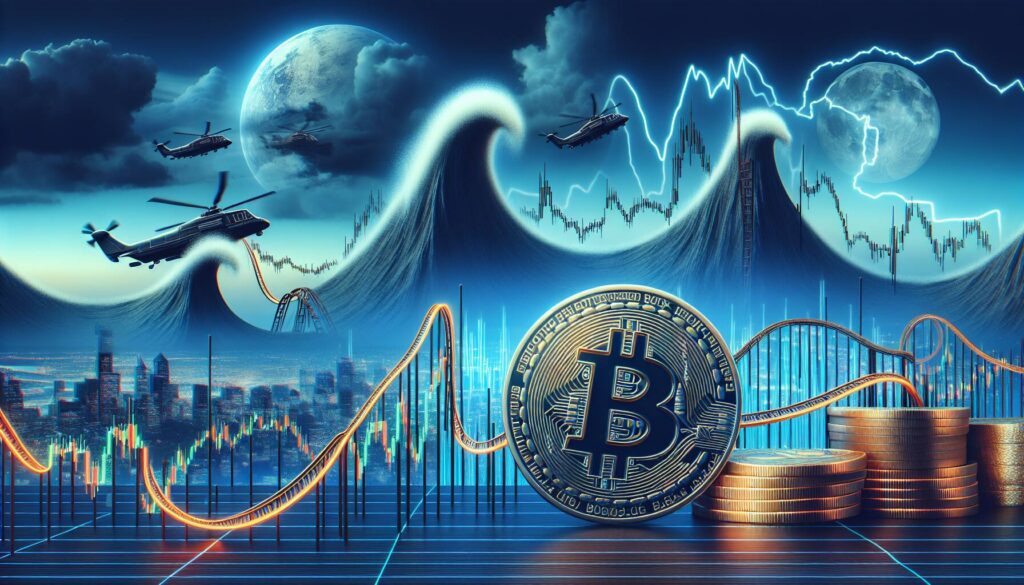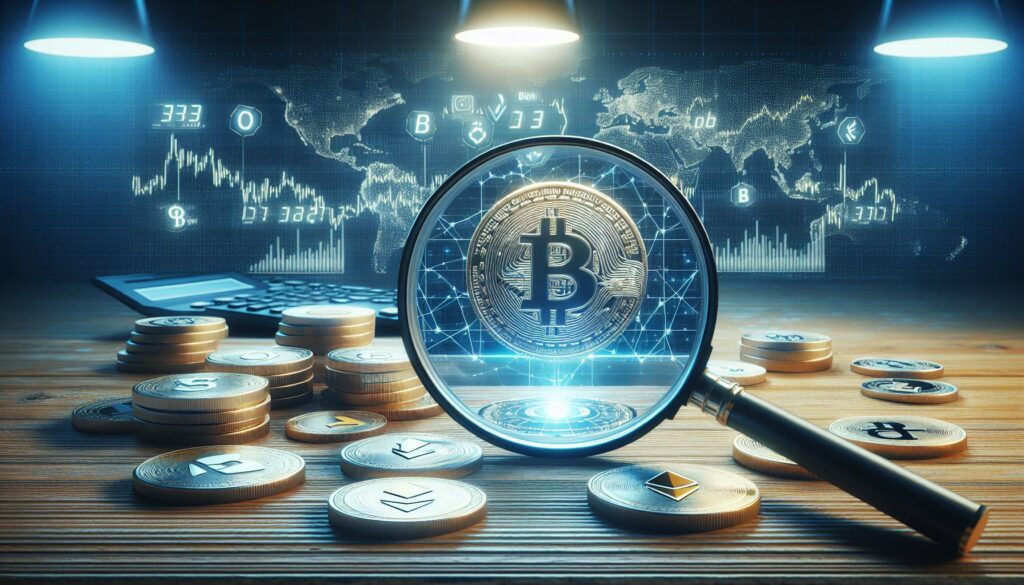The Solana Foundation has recently announced a crucial fix for a serious vulnerability that could have allowed attackers to manipulate its Token-22 confidential tokens. This bug, first identified on April 16, raised alarms as it had the potential to enable an attacker to forge invalid proofs, posing a significant risk to user accounts. However, following rigorous patching efforts, the Foundation confirmed that all funds remain safe and that validators have adopted the updated protocols.
“A zero-day vulnerability…could have allowed an attacker to mint and steal Token-22 confidential tokens.”
Token-22, also known as “Extension Tokens,” utilizes zero-knowledge proofs to facilitate private transfers, aiming for enhanced token functionality. The flaw was traced to a missed algebraic component in a cryptographic process, which could have allowed unauthorized token minting. Thankfully, collaborative efforts from Solana development firms, including Anza, Firedancer, and Jito, along with research assistance from Asymmetric Research, Neodyme, and OtterSec, led to the swift deployment of two critical patches.
“The ability to coordinate a patch doesn’t mean that Solana is centralized.”
Despite resolving the issue, the Foundation’s approach to managing the vulnerability has ignited debates about centralization within the Solana ecosystem. Some critics, including a contributor from Curve Finance, raised concerns about the level of communication between Solana validators and the Foundation, suggesting possible risks of collusion in decision-making processes. On the other hand, Solana Labs CEO Anatoly Yakovenko defended the network by pointing out similar dynamics within the Ethereum community, arguing that a significant share of Ethereum’s validators are also aligned with major crypto exchanges.
“If Geth needs to push a patch, I’ll be happy to coordinate for them.”
As discussions unfold, it’s essential to note the contrasting views on decentralization between Solana and Ethereum. Ethereum community member Ryan Berckmans emphasized the diversity of Ethereum clients, a factor he believes contributes to greater resilience against such vulnerabilities. He notably criticized Solana’s reliance on a single production-ready client and stressed the need for a more diverse client ecosystem to ensure stability.
Looking ahead, Solana is set to introduce a new client named Firedancer, expected to enhance network performance and security. However, there remains a strong call within the community for improvements that can bolster decentralization at all levels, ensuring a robust infrastructure for future developments.
Solana Security Vulnerability Update
The Solana Foundation has recently identified and resolved a critical zero-day vulnerability that posed significant risks to its Token-22 confidential tokens. Below are the key points related to this situation:
- Identification of Vulnerability:
- The vulnerability was discovered on April 16, with serious implications allowing an attacker to mint and withdraw tokens from user accounts.
- Technical Details:
- Concerns related to the Token-2022 program, which manages token mints and accounts.
- The flaw involved missing algebraic components in the hash generation for zero-knowledge proofs, potentially permitting forged proof creation.
- Resolution:
- The Solana Foundation confirmed all funds remain safe, and two patches were deployed promptly to mitigate the vulnerabilities.
- Validators rapidly adopted the patches, which were supported primarily by the development firms Anza, Firedancer, and Jito.
- Centralization Concerns:
- Despite the quick fix, some stakeholders raised alarm over potential centralization issues within the Solana ecosystem, questioning the foundation’s control over validators.
- Comparisons with Ethereum:
- Discussion arose concerning the risks of centralization, comparing Solana to Ethereum, where a broader client diversity is believed to enhance resilience.
- Solana Labs’ CEO highlighted that Ethereum has similarly concentrated validator control, mainly through exchanges.
- Future Developments:
- Solana plans to introduce a new client, Firedancer, aimed at boosting network resilience and uptime.
- Discussions about the need for multiple clients to achieve better decentralization are ongoing.
Understanding these developments is crucial for users and investors within the Solana ecosystem, as it not only impacts token safety and network reliability but also raises essential questions about the decentralization and governance of blockchain protocols.
Analyzing the Solana Foundation’s Recent Security Vulnerability Patch
The recent announcement by the Solana Foundation regarding a patched zero-day vulnerability has stirred both relief and skepticism within the crypto community. While the foundation has assured that user funds remain secure, there are pros and cons to consider, particularly when set against similar narratives in the cryptocurrency space. The swift response to mitigate the vulnerability is certainly commendable and showcases a proactive approach to security. However, the manner of handling the situation has raised eyebrows about centralization issues, which could potentially undermine trust among users.
Competitive Advantages: The rapid adoption of the security patch by the majority of Solana validators exemplifies an efficient and cooperative community. This level of responsiveness can enhance user confidence in the network, particularly in times of vulnerability. Additionally, the involvement of recognized development firms like Anza, Firedancer, and Jito adds credibility to the patch’s effectiveness and suggests a strong collaborative effort within the ecosystem. Moreover, improvements stemming from this incident are anticipated, especially with the forthcoming launch of the Firedancer client, which could bolster resilience and uptime for the entire network.
Potential Disadvantages: On the flip side, concerns about centralization have emerged, particularly given the Solana Foundation’s close ties with its validators. Critics argue that such relationships could lead to a scenario where transaction censorship or chain rollbacks may occur, mirroring some of the fears surrounding Ethereum. This sentiment is exacerbated by the perceptions of vulnerability, considering that the Solana ecosystem relies heavily on a single production-ready client—Agave. Such dependence can be perilous; it raises the stakes substantially when it comes to experiencing similar zero-day bugs, which could have widespread ramifications.
The implications of this situation can significantly affect various stakeholders. For users of the Solana platform who value decentralization and security, the incident may provoke hesitation in engaging with Token-22 confidential tokens, especially if they feel there is a risk of collusion among validators. Meanwhile, broader implications could arise for developers looking at Solana as a viable project for innovation, as they may reconsider participating in a potentially centralized environment. Conversely, for established players in the crypto sphere, including Ethereum, this narrative might serve as a contrast to emphasize their client diversity and community governance, fostering an even stronger trust among their user base.
As the field continues to evolve, how Solana addresses and communicates about centralization concerns will be critical in maintaining its reputation and user loyalty moving forward.














